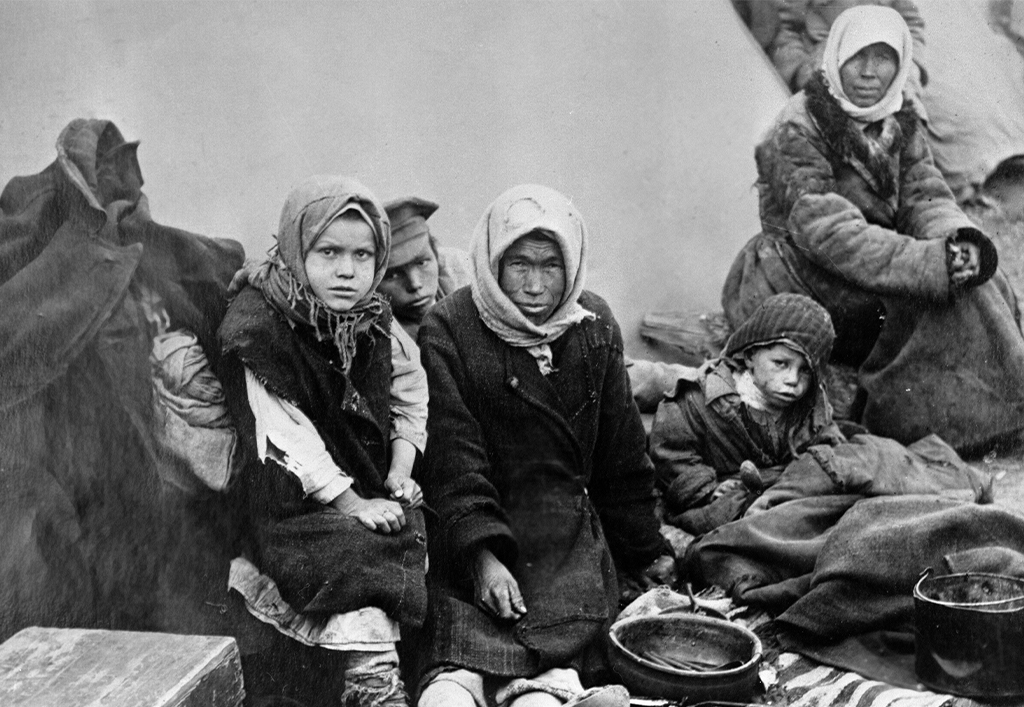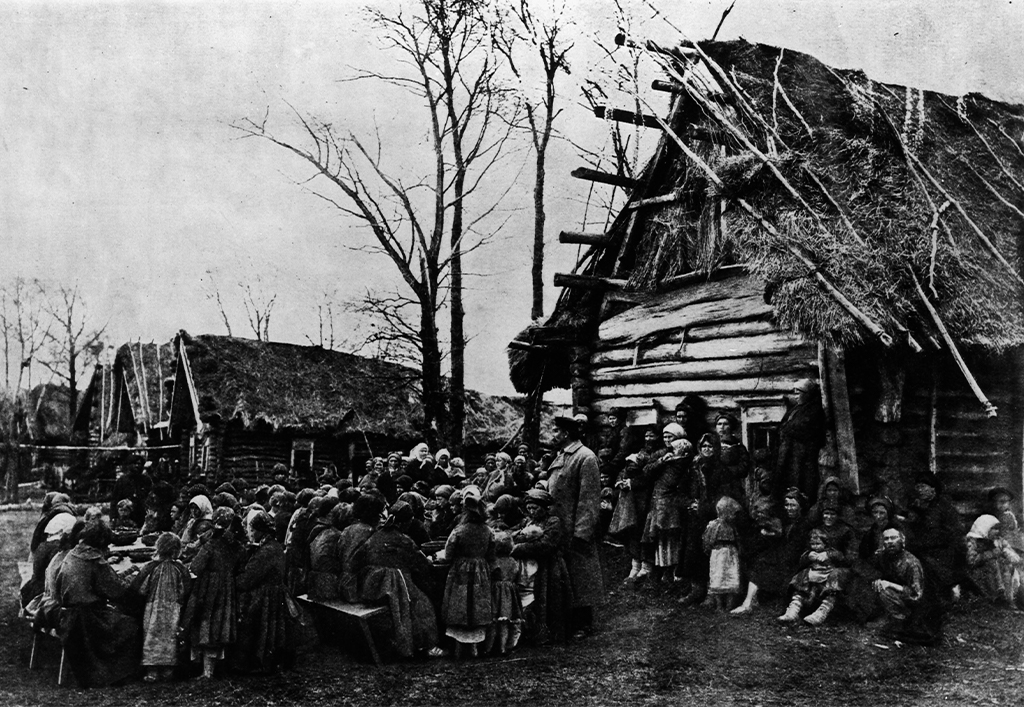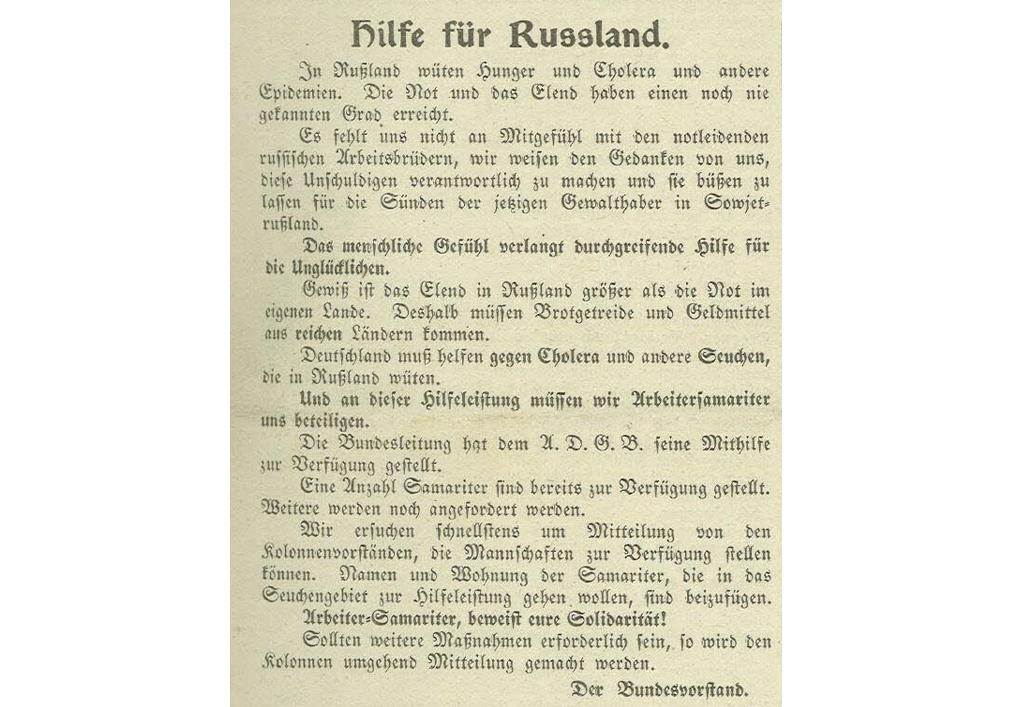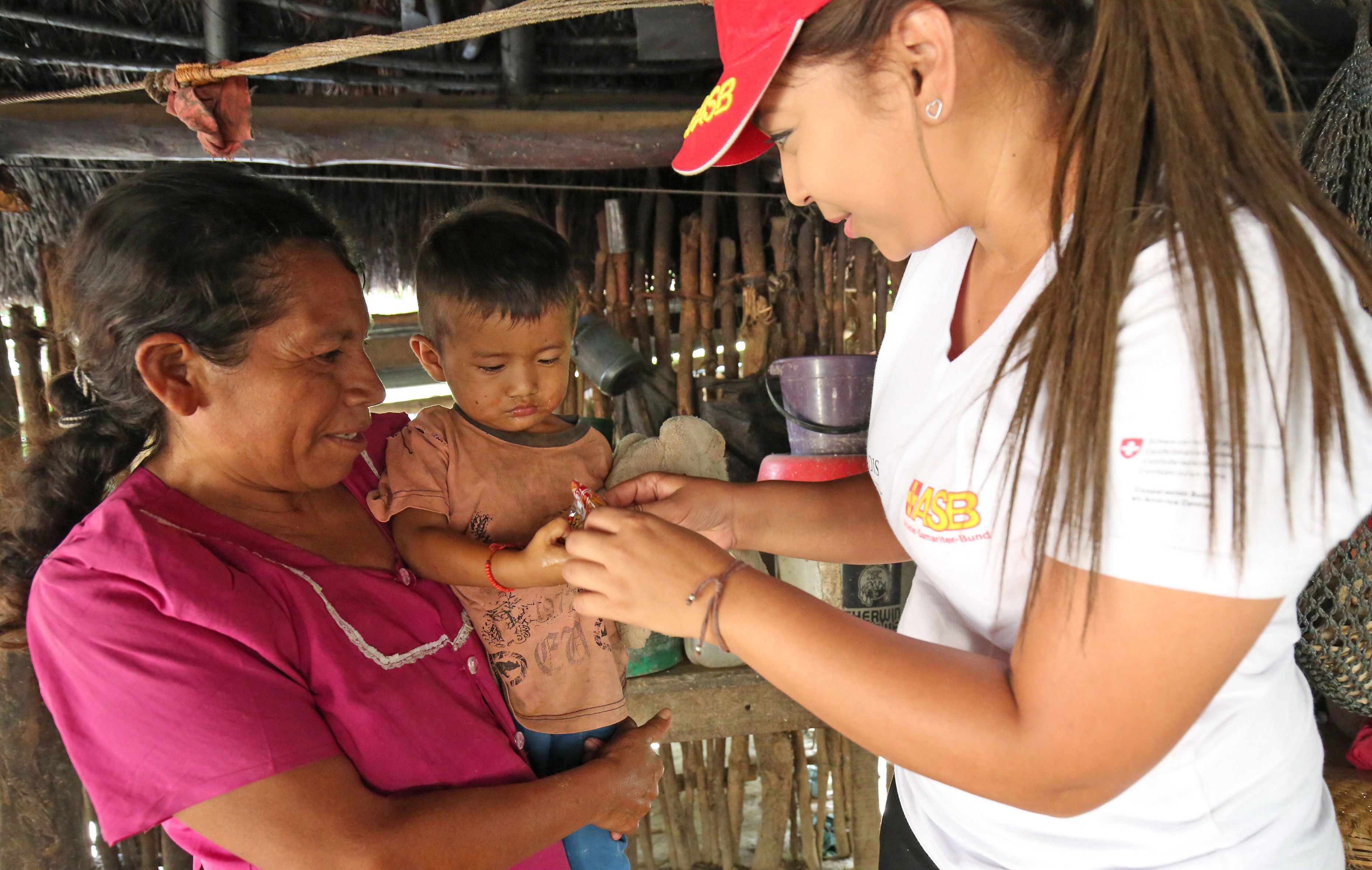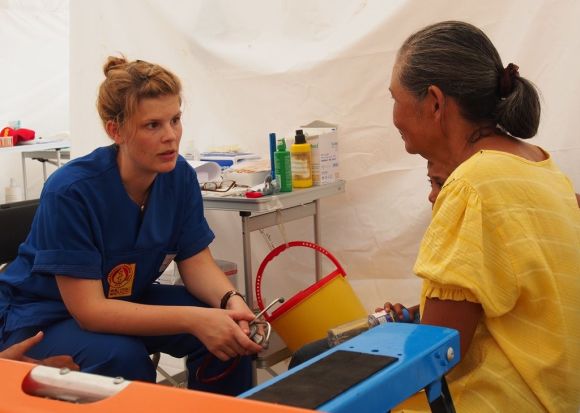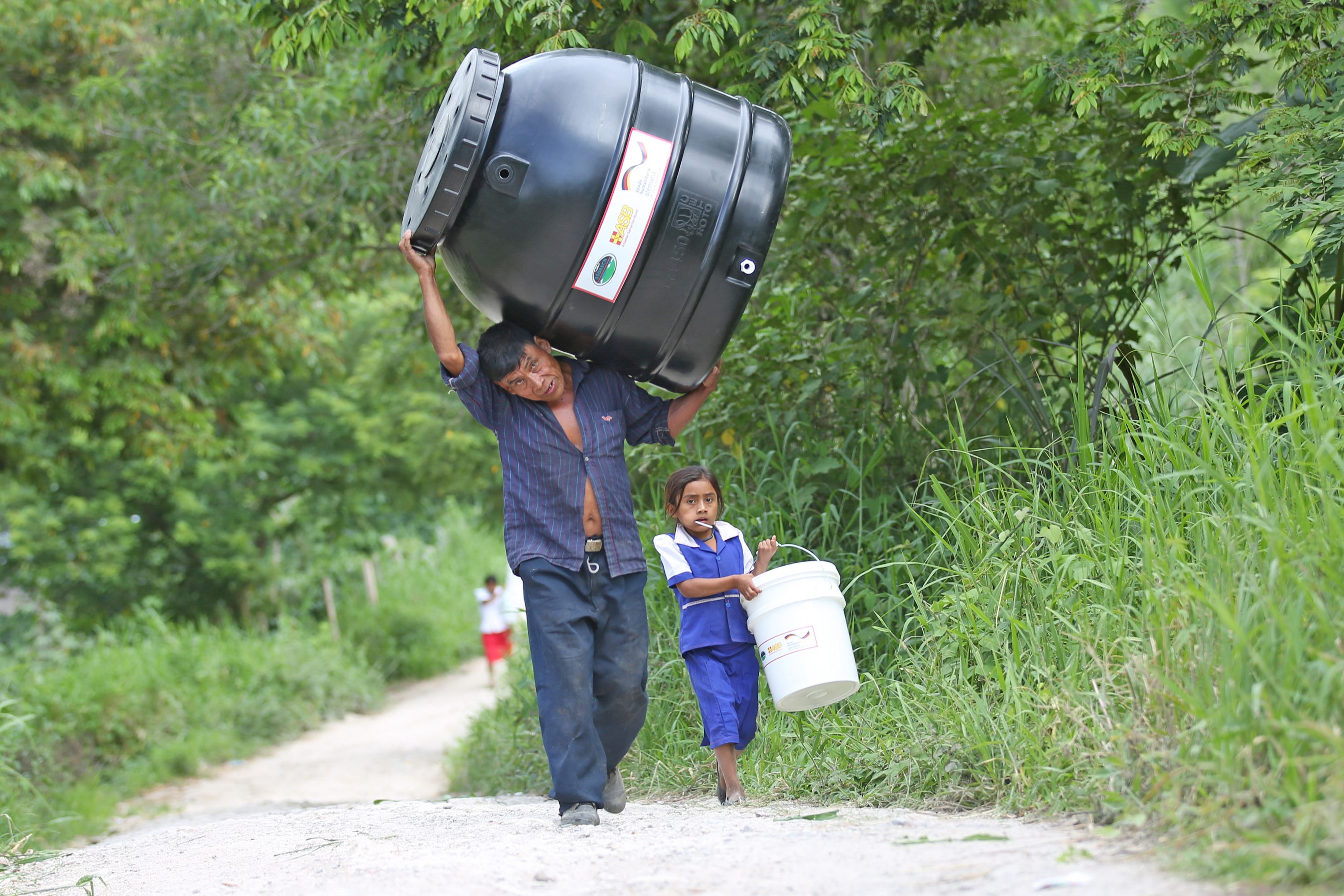
1921: The beginnings of ASB’s foreign aid - humanitarian aid during the famine in Russia
In 1921, a devastating famine descended on Russia. There was terrible hardship and misery. A three-year drought had left the region between the Don and Volga rivers, which is vital for grain production, facing a failed harvest. Up to 20 million people were threatened by starvation. In addition, diseases such as cholera and typhoid were spreading.
The High Commissioner for Refugees of the newly founded League of Nations, the Norwegian polar explorer and later Nobel Peace Prize laureate, Fridtjof Nansen, therefore made a fiery appeal to the members of the League of Nations to help the Soviet Union. The Federal Board of the Arbeiter-Samariter-Bund (ASB) answered the call and decided to undertake its first humanitarian aid mission abroad to help the starving people. In a letter, they called upon all Samaritans to show their solidarity.
“In Russia there is famine and cholera and other epidemics. Hardship and misery have reached an unprecedented level. We do not lack compassion for our suffering Russian brothers. We reject the idea of holding these innocent people responsible and making them pay for the sins of the present rulers in Soviet Russia.
Human compassion demands extensive help for those in need. The misery in Russia is certainly greater than the need here at home. Therefore, grain and funds must come from rich countries. Germany must provide help against cholera and other diseases raging in Russia.
And we as Samaritans must participate in this assistance. The federal management has promised its assistance to the A.D.G.B. (General German Trade Union Federation). A number of Samaritans have already been made available. And more will be requested.
We ask our group leaders, who can provide rescue teams, to notify us as soon as possible. The names and addresses of every Samaritan who intends to go to the epidemic area for assistance shall be enclosed. Samaritans, show your solidarity! Should further measures be necessary, the teams will be notified immediately”, wrote the Federal Board of the ASB in 1921.
In cooperation with other aid organisations, one of the largest international relief efforts of the 20th century began, providing food, clothing and medicine to up to 11 million people a day at its peak. In Petrograd (today: St Petersburg) a train was loaded, which headed for Kazan via Moscow. A number of Samaritans were on board this relief train. The train transported food, a mobile bacteriological laboratory and medicine. The relief effort mainly targeted refugees, minorities, children and people with disabilities. On 4 November 1921, Russian revolutionary Leon Trotsky visited the train in Moscow and thanked the relief organisations, including the ASB, for their help.
In the following years, the ASB carried out further humanitarian relief efforts abroad, including during the popular uprising in Hungary in 1956. At that time, the ASB organised donations in kind of more than 50 tons, monetary donations of more than DM 25,000 and medicines worth DM 60,000 and sent them to Hungary.
Another example is the aid the ASB provided to Chad in 1983: with ten trucks, the association supported the distribution of food from the European Community in the Central African country. Chad was, at the time, experiencing a catastrophic famine due to a long period of drought and the ongoing civil war.

